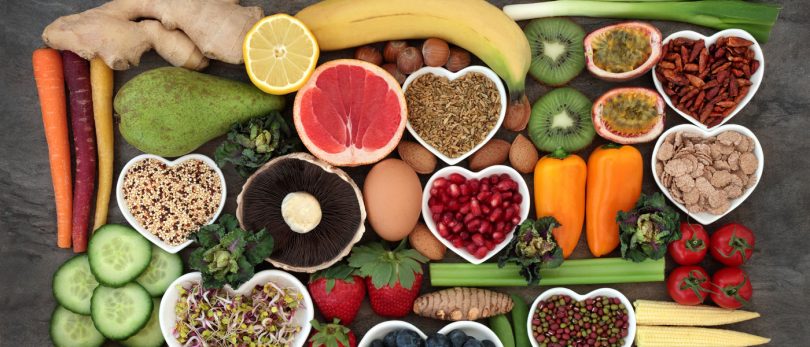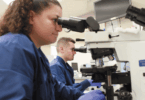As a clinical dietitian and certified specialist in oncology nutrition at UHS Oncology Services, Rebecca Robins, MSL, RD, CSO, CDN, works with patients that have many different nutrition and diet challenges stemming from cancer and cancer treatment. These are some of the ways she is able to make her patients’ lives a little easier and healthier through diet and nutrition:
For head and neck cancer patients, the mechanics of eating are often difficult. Patients have difficulty swallowing and maintaining saliva, and many use feeding tubes during or after their treatment. Due to this difficulty, when Ms. Robins works with these patients she is focused on ensuring the foods they are able to eat provide patients with the calories and nutrients they need to be healthy. This can include advising them on the foods themselves or helping them with methods to make eating easier and less painful.
For colorectal cancer patients, there can understandably be issues with bowel pain or discomfort. Ms. Robins works with these patients to select foods and recipes that are easy on the bowels and can help manage some of the discomfort they might feel. She helps to make sure they drink enough water or eat foods with enough liquid, because dehydration is another potentially harmful side effect these patients experience.
For general cancer patients—and really people in general—Ms. Robins often recommends the Mediterranean diet. “Based on all the research, everything points toward the Mediterranean diet,” she says. “It’s a good diet for prevention, during treatment and into survivorship.” The diet is also flexible, so it is often not too difficult to adapt to even for picky eaters. “The emphasis is on more fruits and vegetables, healthy fats, such as olive oil or fats from nuts or fish, limiting dairy, beef and pork, and whole grains in moderation,” says Ms. Robins.







